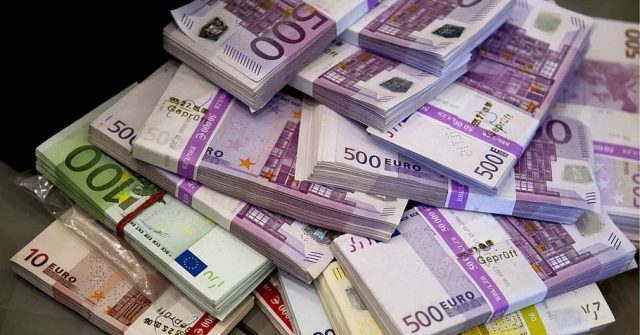
Since March last year, the European Commission has given the green light for 733 billion euros in state aid to companies within the European union. Criticism is voiced from the business community that the aid reduces competitiveness and increases bureaucracy.
It is a figure that was only surpassed during the corona pandemic in 2020 when the EU changed its conditions for state aid and approved that almost 900 billion euros in state aid was distributed by member states.
The EU Commission is tasked with controlling state aid to companies to avoid that these distort competition in the EU’s internal market. However, following the outbreak of the Corona pandemic, the Commission approved that the rules were temporarily made more flexible.
Germany accounts for almost half
But after that, however, new crises have succeeded each other. First with Russia’s full-scale invasion of Ukraine last February and the subsequent high energy price crisis.
In March 2022, the Commission approved a temporary crisis framework to support the economy – it gave Member States the possibility, among other things, to grant support to companies affected by the crisis or by the sanctions against Russia, as well as to compensate companies for additional costs due to increased gas and electricity prices.
Of the support approved under the crisis framework, Germany accounts for almost half. France is in second place with 23 percent of the approved projects and Italy takes third place with eight percent. As a comparison, in 2020 Germany accounted for 25 percent of the EU’s GDP, France for 17 percent and Italy for 12 percent. This means that Germany and France allow the state to enter more aid into companies than Italy and other countries.
Competitiveness undermines
Overall, generous state aid rules tend to favor the large economies, which have greater financial capacity to support their companies, and disadvantage smaller EU countries. Ahead of the EU presidency this spring, Sweden intended to pursue the issue of competitiveness, as a counterforce to European Commission President Ursula von der Leyen’s plans for increased state aid, according to the Financial Times.
After competition commissioner Margrethe Vestager presented the proposals to revise the state aid rules in the beginning of this year, the Confederation of Swedish Enterprise representing 60,000 companies, wrote to the Swedish government: “The proposals to further ease the state aid rules are inappropriate. They risk increasing the already noticeable distortions of competition that exist, where a few countries favor their companies to a far greater extent than others.”
They added: “The proposals also risk increasing the complexity of the regulatory framework, administrative burden, and in the long-term lead to reduced competitiveness, dynamism and productivity in the European business community.”
The confederation instead wants competitiveness in Europe to be strengthened in the long term in other ways than through changes in the state aid rules. They want to see an improvement in the rules and a deepening of the integration in the internal market. Rule improvements and a deepening of the integration in the internal market is a better way, they write.
Expand state aid for green investments
But instead of restraining the state aid, the European Commission have decided to extend this kind of crisis framework until the end of 2025 and extend it to also enable green investments.
In Marsh the Commission adopted a new “temporary crisis and transition framework” to foster support measures in sectors which are key for the transition to a net-zero economy, in line with the Green Deal Industrial Plan.
The Commission states that this will help speeding up investment and financing for clean tech production in Europe. More temporary state aid changes the scope of measures to support renewable energy, energy storage and decarbonisation of industrial production processes, the Commission argues.



 Subscribe
Subscribe